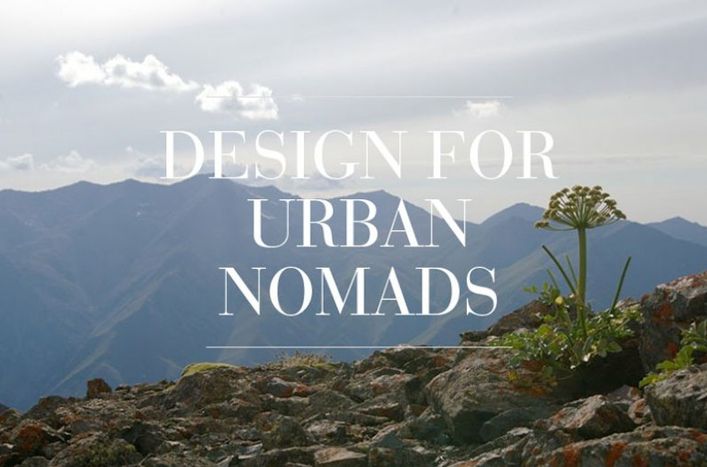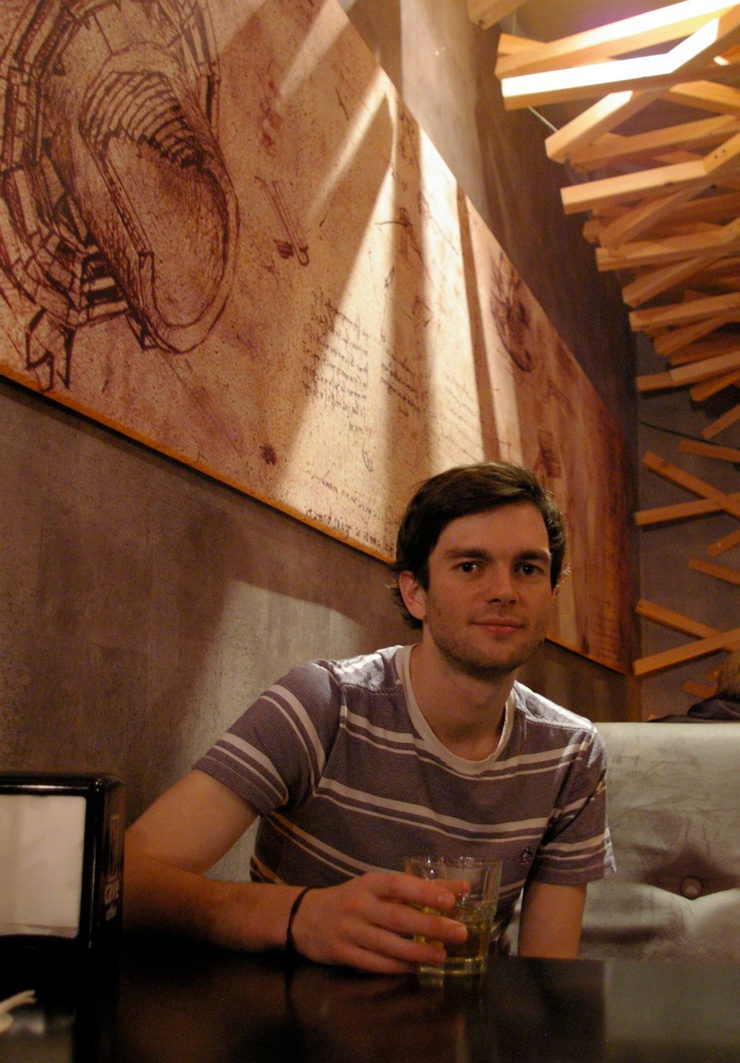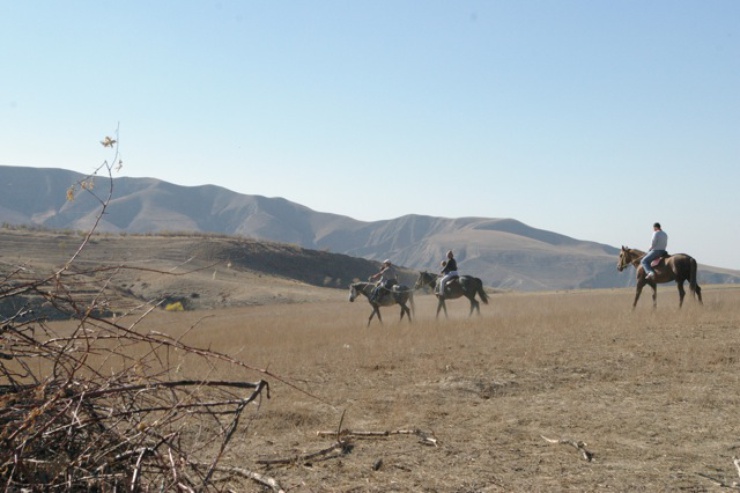
From Berlin to Bishkek: creating a felt start-up in Kyrgyzstan
Published on
Translation by:
Owen ThompsonWhat does felt from Kyrgyzstan have to do with the hectic pace of life in major European cities? At first glance, not very much – however, nomads from the high plains of Kyrgyzstan have a great deal in common with the ‘urban’ nomads of Berlin, London and Stockholm. Tobias Gerhard talks about his project, 'Kancha'
It’s an ice-cold winter's day in the Mitte central district of Berlin. In the hip deli Mogg&Melzer, Tobias Gerhard strips off his jacket – the 27-year-old is running late and has a million and one things on his to-do list before he jets off again. He throws a quick glance at his mobile phone: 'It's 8 degrees in Kyrgyzstan. That's not too bad at all.’
Felt future
In October 2012, the public policy masters student swapped the seminar rooms of the Berlin Humboldt-Viadrina school of governance for Bishkek, capital of the central Asian country of Kyrgyzstan. 'It was a question of implementing a concrete project which strives to bring about a change in society,’ explains Tobias. It quickly became clear to him that the project would be carried out in Kyrgyzstan, where his girlfriend Maya, a Kyrgyzstan native, lives and works. The pair met at university in Budapest.

Their enterprise Kancha aims to bring Kyrgyzstan’s felt-craft to major European cities. It is a fusion of the traditional and the modern in the form of designer bags and cases for laptops, smartphones, tablets and e-readers made from Kyrgyz felt. The felt bags and cases combine Kyrgyz nomadic culture, which is very much still thriving, with the needs of what Tobias calls 'urban nomads'. 'Big city dwellers nowadays are extremely mobile, after all,' he says. 'They often don't have a fixed office; they work in coffee shops or working spaces on their ipads.'
Fair trade? Not necessarily
The products and target market have already been established – all that's left to work out is the societal change element which the project aims to bring about. Tobias has already made the first step in this direction through his choice of material. Felt craft is still very highly regarded and widespread in Kyrgyzstan; the felt produced there is recognised worldwide for its fine quality. However, the majority of felt manufacturers are not appropriately remunerated for their work. A large percentage of them do not benefit from social security protection. ‘One thing is clear - fair wages and safe working conditions are a must,’ says Tobias. In his experience, responsibility is all too often simply dispensed with. For this reason, it is important for him to be onsite, and thus to be able to regulate the production process.

These social aims featuring at the forefront of the project are the only thing Kancha has in common with traditional NGOs. If the enterprise gets up and running, it is definitely set to generate profit. Tobias does not have a huge budget at his disposal. His current goal is to produce a collection of several hundred bags: a few conceptual designs have already been completed, with the final products are due to follow in a few months’ time.

Whilst the fusion of economic and social goals initially looks good on paper, it is far from being easy to implement. This is due not only to the scarcity of financial means, but also to structural factors in Kyrgyzstan. The country suffered significantly under the collapse of the Soviet Union, and is widely regarded as being unstable. There are still disputes, particularly between ethnic minorities, most recently in 2010 which even saw the overthrow of the government. When looking for cooperative partners for Kancha, language poses a particular hindrance: though Tobias is learning Russian, many inhabitants of Kyrgyzstan still speak Kyrgyz. Instead of dealing with potential partners personally, the entrepreneurial student must often rely on others. Attitudes towards work-flow and quality also pose a problem for Kancha's set-up. Many things take longer to get done than in Germany and in Kyrgyzstan time is treated more liberally in general.
'I know that I am not the only one to have had the idea of bringing enterprise and social thinking together'
The biggest obstacle for Kancha on its path to success is likely to be an abundance of similar projects which are also seeking to improve the world, to make it a more pleasant, more just and liveable place. 'I have to be clear about it and know that I am not the only one to have had the idea of bringing enterprise and social thinking together,' says Tobias. For this reason, he is trying to tell the story behind the project, and to make the people who have participated visible. Tobias hopes that Kancha will establish a link between the product and the consumer. ‘Each bag will have a small label on it with the name of the felt manufacturer. On the website you’ll be able to see both a profile and a photo of this person.’ The blog will provide an insight into the entire production process, including the wages of individual workers – transparency is right up there at the top of the list of priorities. Tobias believes that by working in this way, it is possible to dispense with labels such as ‘fair trade’, which may often cost more than the good idea behind it is worth.
For Tobias, it is a question of nothing less than the true value of the work – that much is made clear by the name chosen for the enterprise. ‘Kancha is an expression which can often be at the marketplace in Kyrgyzstan. It means: How much? How expensive?’ Moving to Kyrgyzstan is worth the effort, even if Tobias has a bit to wait yet to make a profit.
Images with kind permission from © Tobias Gerhard
Translated from Kancha: Start-up aus Kirgistan für digitale Stadtnomaden



